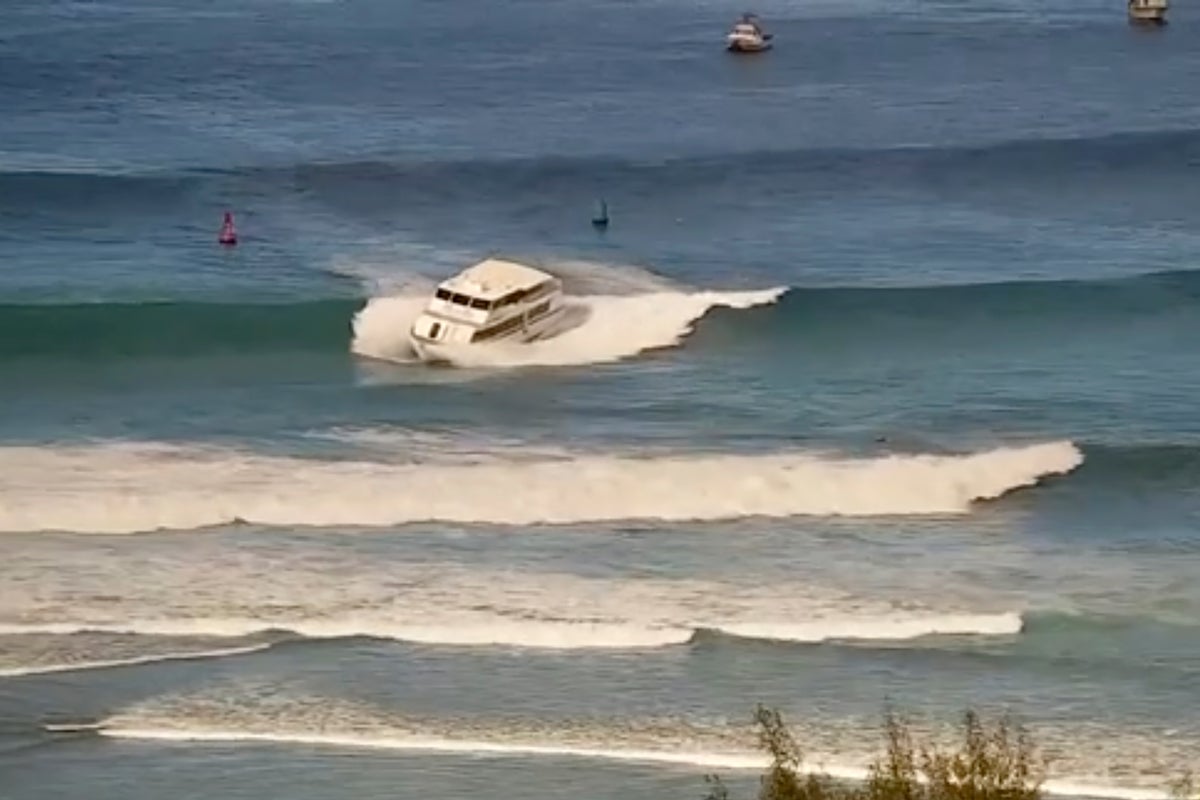Communities correspondent, Wales News
A mum whose severe pregnancy sickness was so bad she said she had to have a termination has called for better care for women like her.
Sarah Spooner from Monmouthshire recalled “begging” medical professionals for Xonvea, an anti-sickness medication that’s available in England for women with Hyperemesis gravidarum (HG) but not routinely available in Wales.
HG is defined by the NHS as prolonged severe nausea and vomiting that might not stop until the baby is born.
The Welsh government said Xonvea could be prescribed in exceptional cases where other treatments have failed, with more than 750 prescriptions dispensed since January.
According to NHS Wales, it is thought about one to three of every 100 pregnant women get HG, although some cases go unreported.
The symptoms are severe nausea, vomiting, dehydration and weight loss and it often requires hospital treatment.
Sarah, 32, said her concerns about excessive vomiting in her first pregnancy were dismissed and it was only after giving birth and losing 3kg (6lbs) that she realised she probably had HG.
The mum-of-one thought her knowledge of the condition would help her second pregnancy earlier this year “but then it was just a car crash”.
She recalled routinely waking up at 4 or 5am to be sick, being unable to eat or drink and unable to work.
“You can’t keep water down and then you’re tired because you don’t eat for days and your head hurts and you’re losing weight.”
The optometrist and part-time photographer said, when the sickness got worse, she wanted to try Xonvea, the only anti-emetic licensed for use in pregnancy to treat nausea and vomiting in the UK.
It is recommended as an effective first line treatment by the Royal College of Obstetricians and Gynaecologists, alongside alternatives such as cyclizine, prochlorperazine and ondansetron which are regularly prescribed by doctors.
One box of 20 tablets costs £28.50 – considerably higher than other alternatives.
Xonvea is not routinely available in Wales or Scotland – it is available in parts of England, although last month Prime Minister Keir Starmer promised to address the postcode lottery some patients there face.
Sarah was prescribed the drug at an appointment in Wales and found it to be more effective than other medications, but it was only for a fortnight at a time and was difficult to get hold of.
“My husband had to drive a 100-mile round-trip, and I’d be being sick, so he’d have to take time off work to get me there,” she said.
One time, her husband had to call an ambulance after coming home to find her on the floor vomiting, unable to move because of the pain.
At nine weeks pregnant and ill with a serious eye infection, a hospital doctor told her her body was not coping.
“She said worst-case scenario, you’ve only got seven months left of this and I thought ‘I’m going to die, I can’t do this for seven more months’,” she said.
The couple decided to end their much-wanted pregnancy and now Sarah has submitted a petition to the Senedd calling for wider access to Xonvea in Wales.
She described her experience as “unbelievably frustrating” as she lives on the Wales-England border.
“To think that, if I lived half a mile down the road, the outcome of pregnancy could have been different, it’s just unacceptable.”
 Pregnancy Sickness Support
Pregnancy Sickness SupportPregnancy Sickness Support chief executive Charlotte Howden said the situation was “beyond belief”.
The charity, which provides counselling, training and advocacy, said there needed to be fairness.
“With Wales it’s effectively a widespread ‘computer says no, you are not able to access this medication’,” she said.
“Yes, you might find a doctor willing to prescribe it, but that shouldn’t be the journey here.”
She added it was important to note that different combinations of drugs had different results for individuals, but women should have all options available to them, regardless of the cost of Xonvea.
“What’s the cost of an ambulance to go into hospital because you’ve not been given all the treatment options available to you and once you do that it’s a very quick assessment to be able to see that’s a false economy”.
The All-Wales Medicine Strategy group (AWMSG) advises the Welsh government about the use, management and prescribing of medicines.
It is made up of NHS consultants, GPs, nurses, pharmacists, health economists, pharmaceutical industry representatives and considers both clinical evidence and cost effectiveness.
A spokesperson said the data on the latter was “insufficient” from the company when it appraised Xonvea in 2019, although it had recently met the manufacturer again and understood it was “actively exploring what options are available”.
It added that it hoped the company would could re-engage later this year.
Manufacturer Exeltis UK said it has been in contact with the AWMSG and was working with health boards across Wales “to support access to treatment”.
The Welsh government said GPs in every health board area regularly prescribed Xonvea when other treatments have failed and AWMSG’s 2019 appraisal remained the most current formal evaluation of the drug in Wales.
“This did not recommend routine use due to insufficient cost-effectiveness data” it said.
- If you have been affected by any of the issues raised in this story you can find details of organisations that can help via Action Line.







